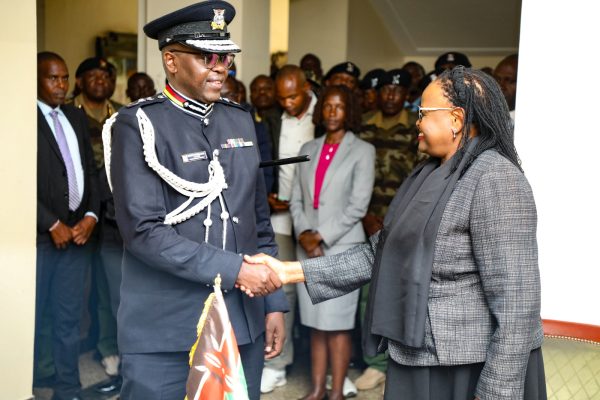Under Kenyan law, a criminal case must proceed through several procedural steps, including investigation, arraignment, and trial. A suspect can only be charged once the evidence collected meets the threshold required by the Office of the Director of Public Prosecutions (ODPP). Furthermore, the Constitution guarantees the presumption of innocence until guilt is proven beyond reasonable doubt.
Yet, the complexity of public office demands more than just legal clearance; it requires unquestionable integrity and the maintenance of public trust. And herein lies the dilemma.
DIG Lagat has not been formally charged. While he had previously filed a defamation complaint against the late Ojwang, neither the Independent Policing Oversight Authority (IPOA) nor the Internal Affairs Unit (IAU) has presented any evidence linking him directly or indirectly to the killing.
Still, critics argue that the very suspicion surrounding his name, coupled with the gravity of the incident, a suspect dying under police custody, renders his return to high office premature, if not irresponsible.
Julius Caesar famously divorced his wife Pompeia, not because she was proven guilty of any wrongdoing, but because he believed that the mere appearance of impropriety was incompatible with public leadership. “My wife ought not even to be under suspicion,” he declared.
Those entrusted with positions of authority, particularly in security and justice, must adhere to an elevated moral standard. In October last year, DIG Lagat himself wrote: “In today’s dynamic world, the security of our communities hinges not only on the strength of our institutions but also on the trust between the police and public.”
That trust is now in jeopardy. The optics of his reinstatement, even in the absence of charges, could further damage the already strained relationship between the police and the citizenry.
There is also the question of command responsibility. This legal doctrine holds senior officers liable for crimes committed by their subordinates if it can be shown that they knew, or ought to have known, about the offences and failed to prevent them. In this case, the investigation has not established any link suggesting DIG Lagat had foreknowledge or gave unlawful orders.
Nevertheless, under Section 51 of the National Police Service Act, officers are only required to obey lawful commands. Those who carry out illegal instructions may still be held personally liable, as obedience to unlawful orders offers no shield from prosecution.
Kenyan law also considers all those who aid, abet, counsel, or procure the commission of a crime equally culpable. Furthermore, where a group acts with a common intention that results in a criminal offence, each individual is deemed to have participated in the act. Despite these provisions, the investigative agencies have not yet established such a connection in Lagat’s case.
So, where does that leave the DIG? Legally, he may well be in the clear. But morally and ethically, the waters remain murky. In high office, particularly in law enforcement, the absence of guilt does not automatically equate to the presence of trustworthiness.
The murder of Albert Ojwang is not just a case file. It is a national tragedy that symbolises the continuing struggle to reform and humanise policing in Kenya. Whether DIG Lagat resumes his role or not, the bigger question remains: what standards do we, as a country, demand of those who wield power?
[/full]





